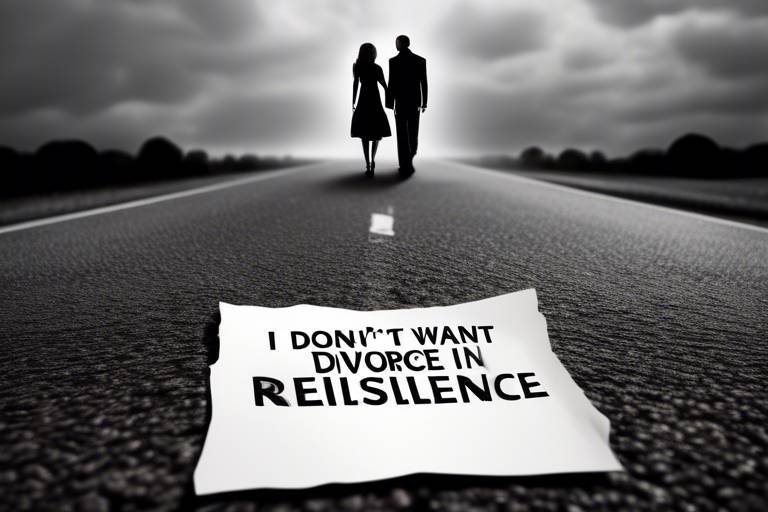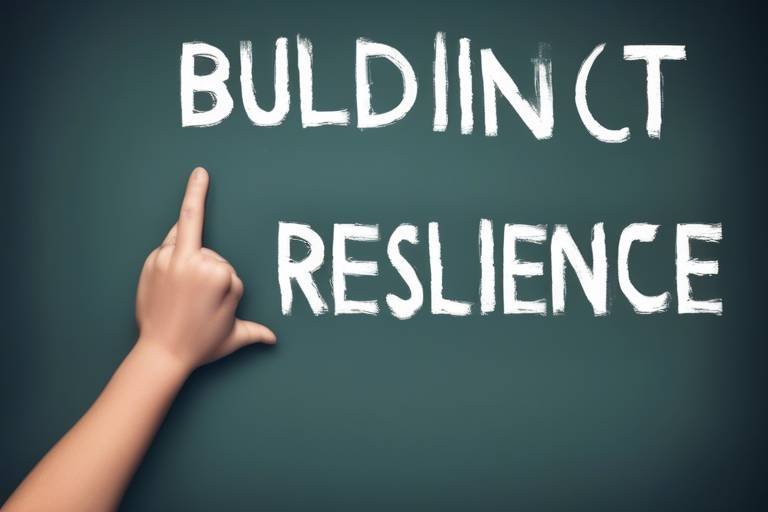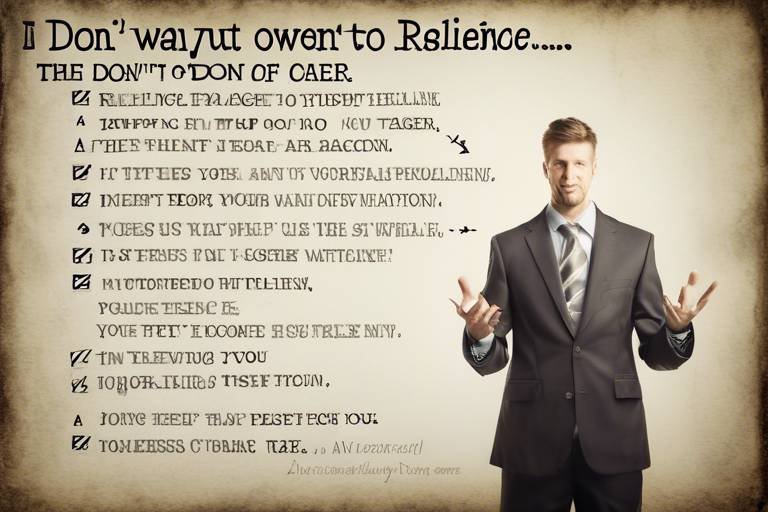Overcoming Stage Fear with Confidence
Stage fright is a universal experience that can strike even the most seasoned performers. It’s that gut-wrenching feeling that makes your palms sweaty and your heart race as you prepare to step into the spotlight. But fear not! This article explores effective strategies and techniques to conquer stage fright, empowering you to perform with assurance and poise in front of an audience. Whether you’re preparing for a school presentation, a business pitch, or a live performance, understanding and overcoming stage fear can transform your experience from anxiety-ridden to exhilarating.
To tackle stage fright effectively, it’s essential to delve into the psychology behind it. Stage fear, often referred to as performance anxiety, can stem from various factors such as fear of judgment, lack of experience, or even perfectionism. When you think about it, it’s akin to standing on the edge of a diving board, staring down into the water below. You know you can swim, but the fear of jumping in can be overwhelming. This fear manifests differently in individuals, with some experiencing physical symptoms like shaking or sweating, while others may struggle with racing thoughts or a sense of impending doom. Understanding that you’re not alone in this experience is the first step in demystifying stage fright.
Recognizing the symptoms of stage fear is crucial for effective management. These symptoms can be both physical and emotional. Physically, you might notice:
- Increased heart rate
- Dry mouth
- Shaking hands
- Shortness of breath
Emotionally, feelings of anxiety or dread may surface, often leading to negative self-talk. By identifying these symptoms, you can better prepare yourself with coping strategies. Remember, acknowledging your fears is the first step toward overcoming them.
Preparation is key when it comes to reducing anxiety. Think of it as laying a strong foundation before building a house. Here are some effective preparation methods:
- Practice Routines: Regular practice can significantly boost your confidence. The more familiar you are with your material, the more at ease you’ll feel.
- Visualization: Imagine yourself on stage, delivering a flawless performance. This mental rehearsal can create a sense of familiarity that eases anxiety.
- Mental Rehearsal: Going through your performance in your mind can help solidify your confidence and reduce the fear of the unknown.
By incorporating these techniques into your preparation, you’ll feel more equipped to handle the spotlight.
Breathing techniques play a pivotal role in managing anxiety. When nerves kick in, our breathing often becomes shallow and rapid, which can exacerbate feelings of panic. Here are a couple of practical exercises:
1. Deep Breathing: Inhale deeply through your nose for a count of four, hold for four, and exhale slowly through your mouth for a count of four. Repeat this several times. 2. Box Breathing: Inhale for four counts, hold for four counts, exhale for four counts, and hold again for four counts. This technique helps to calm the mind and body.
Practicing these exercises before stepping on stage can promote relaxation and help you regain control over your nerves.
Positive visualization is a powerful tool that can transform your mindset. Picture yourself on stage, engaging with the audience, and delivering your message with confidence. This technique is like painting a vivid picture in your mind, where each brushstroke represents a successful moment in your performance. By envisioning success, you’re not just preparing yourself for the stage; you’re also building self-assurance in your abilities.
Gradual exposure to public speaking can be a game-changer. Instead of jumping straight into a large audience, start small. Perhaps begin by speaking in front of a mirror, then progress to friends or family, and eventually work your way up to larger groups. This step-by-step approach is like climbing a staircase; with each step, you build confidence and reduce anxiety.
Don’t underestimate the power of support. Whether it’s friends, mentors, or professional coaches, having a support system can alleviate the burden of stage fear. Sharing your experiences and fears with others not only fosters a sense of community but also provides encouragement and practical advice. Remember, even the most accomplished speakers started somewhere!
Mindfulness practices and relaxation techniques can help you stay present and calm. Engaging in activities like meditation, yoga, or even simple stretching can ground you before a performance. These practices enable you to focus on the here and now, reducing anxiety levels significantly.
Finally, it’s essential to celebrate small achievements along the way. Each time you step onto a stage, no matter how big or small, acknowledge your courage and effort. This reinforcement of positive experiences encourages continued growth in confidence and gradually diminishes stage fear.
1. What is stage fright?
Stage fright is a form of performance anxiety that can cause physical and emotional symptoms when speaking or performing in front of an audience.
2. How can I overcome stage fright?
Preparation, breathing exercises, positive visualization, and seeking support are effective strategies to overcome stage fright.
3. Are breathing exercises really helpful?
Yes! Breathing exercises can help calm your nerves and promote relaxation before a performance.
4. What role does practice play in overcoming stage fear?
Regular practice builds familiarity with your material, which can significantly boost your confidence and reduce anxiety.
5. How can I celebrate small wins?
Recognizing and acknowledging each step you take toward overcoming stage fear reinforces positive experiences and encourages further growth.

Understanding Stage Fear
Stage fright, or performance anxiety, is a common phenomenon that affects many individuals, regardless of their level of experience or expertise. It’s that gut-wrenching feeling you get right before stepping onto a stage, and it can manifest in various ways. But what really causes this fear? At its core, stage fear is rooted in the fear of judgment and the desire for acceptance. Imagine standing in front of a crowd, all eyes on you, and suddenly feeling like you’re under a microscope. This intense scrutiny can trigger a fight-or-flight response, making your heart race and your palms sweat.
The psychology behind stage fright is fascinating. It often stems from a mix of past experiences, self-doubt, and the pressure to perform well. For some, it may be linked to a previous embarrassing moment on stage, while for others, it could be a fear of the unknown. The anticipation of what could go wrong can spiral into overwhelming anxiety. This fear can manifest physically and emotionally, creating a cycle that’s hard to break.
To better understand stage fear, let’s take a closer look at its common causes:
- Fear of Judgment: The worry that the audience will criticize or ridicule you can be paralyzing.
- Perfectionism: Setting unrealistically high standards for yourself can lead to anxiety about not meeting those expectations.
- Lack of Experience: Newcomers to public speaking or performance often feel more anxious due to uncertainty.
- Pressure to Impress: The desire to make a good impression can heighten anxiety levels.
Understanding these elements is the first step in overcoming stage fright. By recognizing that you’re not alone in this experience, you can begin to demystify it and take proactive steps to manage your anxiety. It’s essential to remember that even the most seasoned performers have faced stage fear at some point in their careers. The key is to transform that fear into a source of energy that can enhance your performance rather than hinder it.
In summary, stage fear is a natural response to the pressures of performing in front of an audience. By acknowledging its causes and manifestations, you can start to develop strategies to combat it. Remember, every great performer has faced their fears; it’s how you choose to deal with them that makes all the difference.

Recognizing Symptoms
Stage fright can be a sneaky little devil, creeping up on you when you least expect it. It’s that sudden rush of anxiety that hits right before you step onto the stage, and it can manifest in a variety of ways. By recognizing the symptoms, you can better prepare yourself to tackle this common fear head-on. So, what exactly should you be looking out for? Let’s break it down.
First off, physical symptoms can be quite telling. You might notice your heart racing like it’s trying to escape your chest, or perhaps your palms are sweating more than a marathon runner. These are classic signs of stage fright. Other physical symptoms include:
- Trembling hands or legs that feel like jelly
- Dry mouth that makes it hard to speak
- Rapid breathing that can leave you feeling lightheaded
- Stomach butterflies that feel more like a swarm of bees
But it’s not just your body that reacts; your mind can also play tricks on you. Many individuals experience a whirlwind of negative thoughts, questioning their abilities and fearing judgment from the audience. You might find yourself thinking, “What if I forget my lines?” or “What if they don’t like me?” These spiraling thoughts can lead to feelings of panic and self-doubt, making it even harder to perform.
Another important aspect to consider is how stage fright can affect your emotional state. You may feel a sudden wave of dread wash over you, or perhaps an overwhelming urge to flee the scene. This emotional rollercoaster can leave you feeling isolated, as if you’re the only person in the world experiencing this anxiety. Remember, you’re not alone! Many performers, even seasoned ones, face similar struggles.
In summary, recognizing the symptoms of stage fright is the first step in conquering it. By understanding how it manifests physically and emotionally, you can develop strategies to cope with it effectively. Whether it’s through breathing exercises, preparation techniques, or simply talking about your fears, acknowledging these symptoms can empower you to take control of your experience on stage.
Q: Can stage fright happen to anyone?
A: Absolutely! Stage fright can affect anyone, regardless of their experience level. Even seasoned performers can experience it from time to time.
Q: How can I tell if I have stage fright?
A: If you notice physical symptoms like sweating, shaking, or a racing heart, along with negative thoughts about performing, you may be experiencing stage fright.
Q: Is it possible to overcome stage fright?
A: Yes, with practice and the right techniques, many people successfully overcome stage fright and perform confidently.

Preparation Techniques
When it comes to conquering stage fright, the right preparation techniques can work wonders. Think of preparation as your secret weapon—like a knight sharpening their sword before heading into battle. The more equipped you are, the more confident you'll feel. So, how can you prepare effectively? Let's dive into some strategies that can help you face your audience with poise and assurance.
First and foremost, practice routines are essential. Just like a musician rehearses their piece until it flows effortlessly, you should dedicate time to practice your speech or performance. This not only helps you become familiar with your material but also allows you to identify and work through any tricky sections. Imagine standing on stage, your mind blank—practicing ensures that you have a solid foundation to rely on. Try to practice in front of a mirror or record yourself; this way, you can observe your body language and adjust accordingly.
Next up is visualization. This technique is akin to painting a picture in your mind of a successful performance. Close your eyes and imagine yourself stepping onto the stage, feeling confident and in control. Picture the audience smiling and engaged, and hear the applause that follows your presentation. Visualization not only prepares your mind but also triggers positive emotions that can carry over into your actual performance. It's like rehearsing in your head, where every detail counts.
Another powerful method is mental rehearsal. This involves going through your performance in your mind, step by step. Imagine each word flowing smoothly, the audience hanging onto your every word, and your heart beating steadily with excitement rather than fear. By mentally rehearsing, you can reduce anxiety and enhance your performance skills. It's like a dress rehearsal but without the physical pressure of an audience present.
In addition to these techniques, consider incorporating a warm-up routine before your performance. Just as athletes warm up their muscles, you can warm up your voice and body. Simple exercises like stretching, deep breathing, or vocal exercises can help release tension and prepare you physically for the task ahead. This not only calms your nerves but also gets your body ready to perform at its best.
Moreover, don't underestimate the power of feedback. Sharing your preparation with trusted friends or mentors can provide valuable insights. They can offer constructive criticism and encouragement, which can help you refine your performance. Think of it as having a coach in your corner, ready to cheer you on and help you improve.
Lastly, remember that preparation is a journey, not a destination. Celebrate each step you take towards overcoming your fear. Whether it's mastering a line or successfully delivering a practice speech, acknowledging these small victories can build your confidence. Keep a journal of your progress; it’s a great way to reflect on how far you’ve come and to remind yourself that you are capable of growth.
In summary, effective preparation techniques can significantly reduce anxiety and bolster your confidence. By integrating practice routines, visualization, mental rehearsal, warm-ups, and feedback into your preparation process, you set yourself up for success. So, the next time you feel those butterflies in your stomach, remember: preparation is your ally. Embrace it, and watch your stage fright transform into stage presence.
- What is the best way to practice for a performance?
Consistent practice is key. Try rehearsing in front of a mirror, recording yourself, or presenting to friends for feedback.
- How can visualization help with stage fright?
Visualization allows you to mentally rehearse your performance, creating a positive mindset and reducing anxiety.
- Are breathing exercises beneficial before a performance?
Absolutely! Breathing exercises can help calm your nerves and center your focus, making you feel more relaxed.
- What if I still feel anxious on stage despite preparation?
Feeling anxious is normal. Embrace it as part of the experience. Use coping strategies like deep breathing or grounding techniques to manage it.
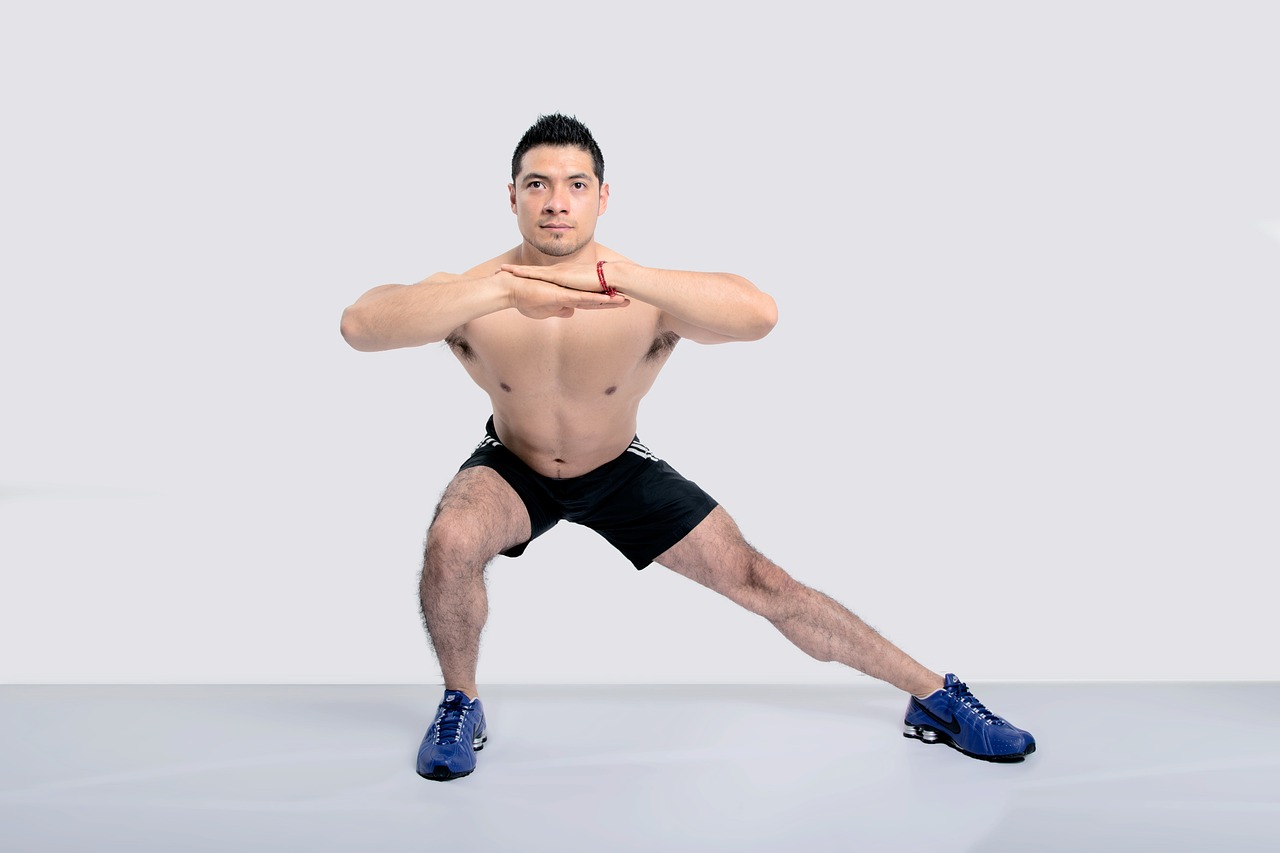
Breathing Exercises
When it comes to overcoming stage fear, one of the most powerful tools at your disposal is your breath. Yes, you heard that right! Breathing exercises can be a game changer when it comes to managing anxiety and calming those jittery nerves before stepping onto that stage. Imagine your breath as a trusty sidekick, ready to help you conquer your fears and perform with confidence. But how exactly can you harness the power of your breath? Let’s dive into some effective techniques that will not only help you relax but also enhance your overall performance.
First off, let’s talk about the 4-7-8 Breathing Technique. This method is simple yet incredibly effective. Here’s how it works: you inhale through your nose for a count of 4, hold that breath for a count of 7, and then exhale completely through your mouth for a count of 8. Repeat this cycle four times. This technique not only calms your mind but also helps to lower your heart rate, making you feel more centered and ready to face your audience. It’s like pressing a reset button on your anxiety!
Another fantastic exercise is diaphragmatic breathing. This method encourages you to breathe deeply into your diaphragm rather than shallowly into your chest. To practice this, find a comfortable position—either sitting or lying down. Place one hand on your chest and the other on your belly. As you inhale deeply through your nose, aim to expand your belly while keeping your chest as still as possible. Exhale slowly through your mouth, feeling your belly deflate. This exercise not only promotes relaxation but also increases the oxygen flow to your body, giving you a natural energy boost. Think of it as filling your tank before a big road trip!
But wait, there’s more! You can also incorporate box breathing into your routine. This technique is especially popular among athletes and military personnel for its effectiveness in enhancing focus and reducing stress. Here’s how it works: inhale for a count of 4, hold your breath for a count of 4, exhale for a count of 4, and then hold again for another count of 4. Visualize a box as you do this—each side representing one of the four phases of the breath. This rhythmic pattern not only calms your mind but also sharpens your concentration, making it easier to deliver that stellar performance you’ve been practicing for!
To help you remember these exercises, here’s a quick reference table:
| Breathing Technique | Description |
|---|---|
| 4-7-8 Breathing | Inhale for 4 seconds, hold for 7, exhale for 8. Repeat 4 times. |
| Diaphragmatic Breathing | Breathe deeply into your diaphragm, expanding your belly, not your chest. |
| Box Breathing | Inhale, hold, exhale, hold—each for a count of 4. |
Incorporating these breathing exercises into your pre-performance routine can significantly reduce your anxiety levels. Take a few moments to practice them before you step onto the stage, and you’ll likely feel a noticeable difference. Remember, your breath is a powerful ally in your journey to conquer stage fear. So, the next time you feel those butterflies fluttering in your stomach, just take a deep breath and remind yourself—you’ve got this!
Q: How long should I practice breathing exercises before a performance?
A: It’s best to start practicing these exercises a few weeks before your performance. However, even a few minutes right before you go on stage can be beneficial.
Q: Can breathing exercises help with other forms of anxiety?
A: Absolutely! Breathing techniques are effective for various types of anxiety, not just stage fright. They can be used in stressful situations like job interviews or public speaking.
Q: How often should I practice these techniques?
A: Regular practice is key. Try to incorporate these breathing exercises into your daily routine, even when you’re not feeling anxious. This way, they’ll become second nature when you need them most.
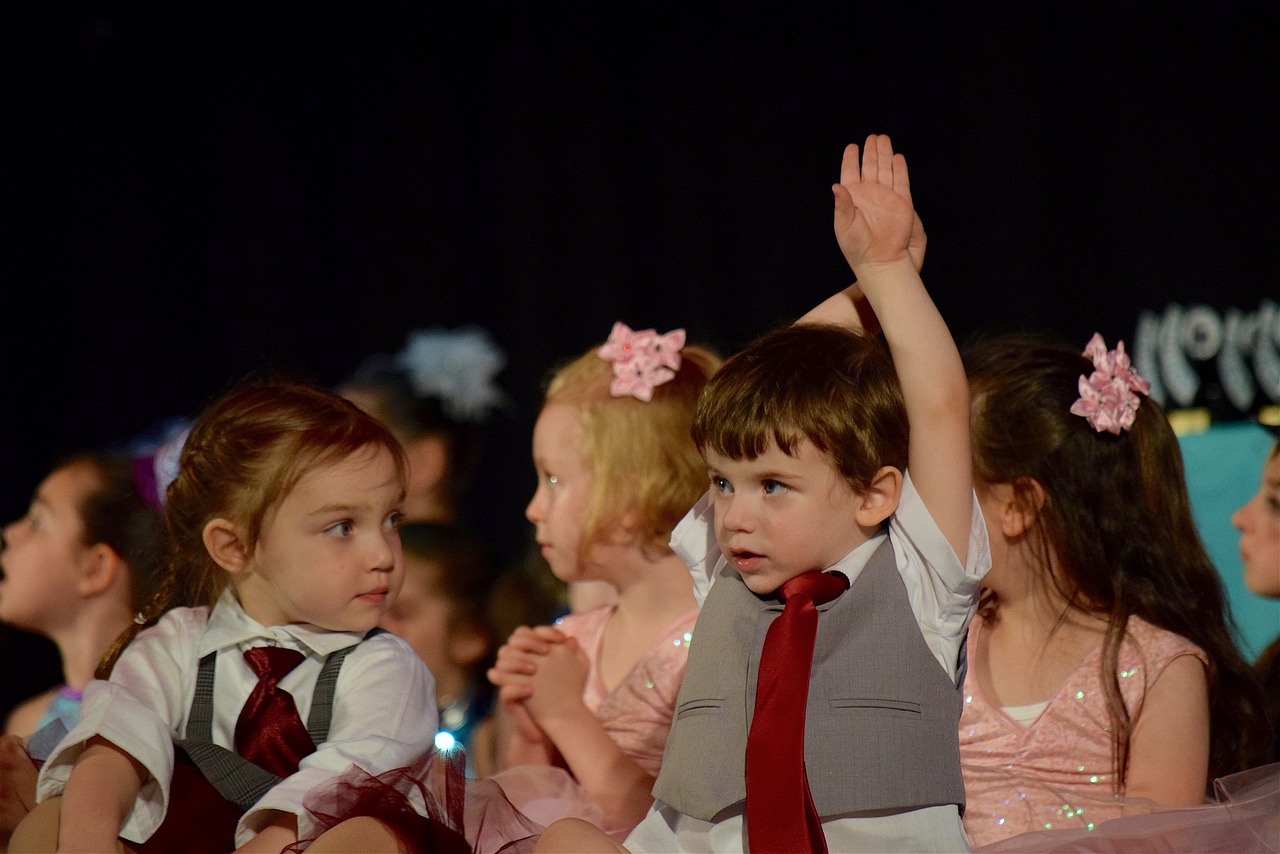
Positive Visualization
Positive visualization is a powerful technique that can significantly enhance your performance and reduce anxiety when facing an audience. Imagine standing on stage, the lights shining brightly, and the crowd eagerly awaiting your presentation. This mental imagery is not just daydreaming; it's a strategic approach that can transform your mindset and bolster your confidence. When you visualize success, you are essentially programming your brain for achievement. Just like athletes visualize their winning moments before a big game, you can do the same before stepping into the spotlight.
So, how does positive visualization work? It taps into the brain's ability to create neural pathways that mimic real-life experiences. When you picture yourself confidently delivering your speech or performance, your brain begins to recognize this scenario as a possibility. Over time, these mental rehearsals can lead to actual improvements in your performance. It’s like rehearsing for a play in your mind, where every detail is vivid, and every word flows effortlessly. This technique not only helps in reducing anxiety but also cultivates a sense of familiarity with the situation.
To effectively implement positive visualization, consider the following steps:
- Find a Quiet Space: Choose a tranquil environment where you can focus without distractions. This could be your bedroom, a park, or any space that feels comfortable.
- Close Your Eyes: Shut your eyes and take a few deep breaths to center yourself. This helps clear your mind and prepares you for visualization.
- Visualize in Detail: Picture yourself on stage. Imagine the audience's reactions, the sound of applause, and the feeling of accomplishment as you deliver your message flawlessly.
- Engage Your Senses: Make the visualization as vivid as possible. What do you see? What do you hear? How do you feel? Engaging all your senses can enhance the effectiveness of this technique.
- Repeat Regularly: Make visualization a part of your routine. The more you practice, the more natural it will feel when you actually perform.
Incorporating positive visualization into your preparation can lead to remarkable changes in your performance. It’s like having a mental rehearsal that boosts your self-esteem and reduces fear. But remember, visualization is just one part of the puzzle. Pair it with other techniques such as deep breathing and gradual exposure to public speaking for a well-rounded approach to overcoming stage fright.
As you embark on this journey of self-improvement, celebrate your progress. Each time you visualize a successful performance, you are reinforcing your ability to conquer stage fear. This process is not just about eliminating fear; it’s about embracing your potential and stepping into your power as a performer.
Q: How long should I spend on visualization?
A: Aim for at least 5-10 minutes each day to create a strong mental image of your success.
Q: Can visualization really help with stage fright?
A: Yes! Visualization can significantly reduce anxiety and help you feel more prepared and confident.
Q: What if I struggle to visualize?
A: Start by imagining simpler scenarios or practice with guided imagery exercises to build your skills.
Q: Is it necessary to combine visualization with other techniques?
A: While visualization is powerful, combining it with techniques like deep breathing and practice can yield even better results.
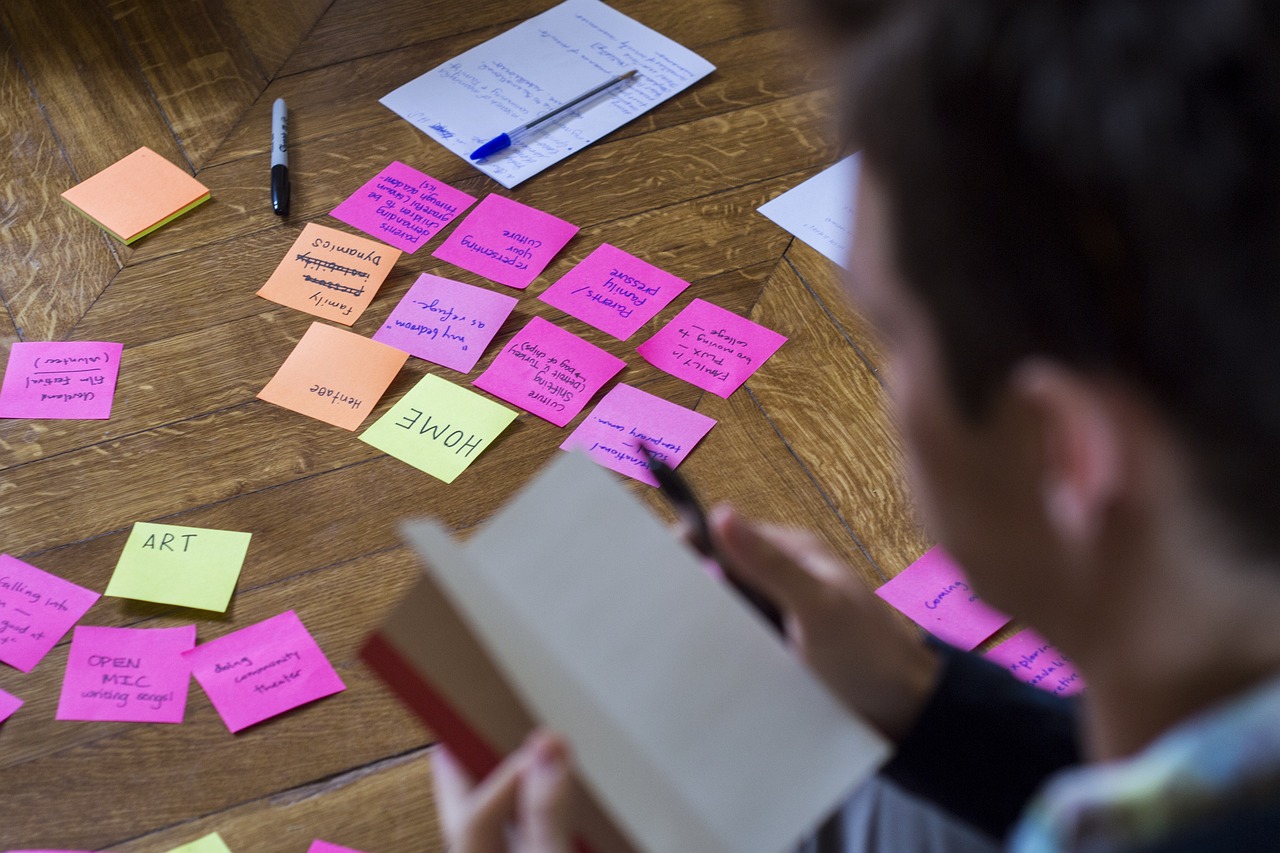
Gradual Exposure
When it comes to overcoming stage fear, one of the most effective strategies is . This technique involves slowly and systematically increasing your exposure to public speaking or performing, allowing you to build confidence over time. Imagine standing at the edge of a swimming pool, hesitant to dive in. Instead of plunging into the deep end, you start by dipping your toes in, then wading in a little deeper, until you're comfortable enough to swim. This analogy perfectly illustrates the gradual exposure method.
By breaking down the daunting task of performing into smaller, manageable steps, you can reduce anxiety and build a sense of accomplishment with each stage you conquer. For instance, you might begin by speaking in front of a mirror, then progress to presenting to a friend or family member. Once you're comfortable with that, you could move on to a small group, and eventually, work your way up to larger audiences.
Here’s a simple step-by-step approach to implementing gradual exposure in your journey to conquer stage fright:
- Start Small: Begin with low-pressure situations, such as sharing a story with a close friend.
- Increase Your Audience: Gradually increase the number of people you speak to, moving from one person to a small group.
- Practice in Different Settings: Try speaking in various environments, like a quiet café or a community center.
- Join a Group: Consider joining a public speaking group, like Toastmasters, where you can practice in a supportive environment.
- Seek Feedback: After each experience, ask for constructive feedback to help you improve.
Each step you take will help desensitize you to the fear associated with public speaking. It’s essential to celebrate each small victory along the way, as these moments of success will reinforce your confidence. Remember, patience is key. Progress might be slow, but every little bit counts!
As you continue this journey, you may find that what once felt terrifying becomes more manageable. Eventually, you’ll not only become comfortable with public speaking but may even find joy in sharing your voice with others. So, take a deep breath, step out of your comfort zone, and embrace the process of gradual exposure.
Q: How long does it take to overcome stage fear using gradual exposure?
A: The timeline varies for everyone. It depends on your comfort level and how frequently you practice. Some may feel more confident in a few weeks, while others may take months.
Q: What if I still feel anxious even after practicing?
A: It's completely normal to feel anxiety even after gradual exposure. Consider combining this technique with other strategies such as breathing exercises or seeking support from peers.
Q: Can I use gradual exposure for other types of fears?
A: Absolutely! Gradual exposure is a versatile technique that can be applied to various fears, not just stage fright.

Seeking Support
When it comes to overcoming stage fear, one of the most powerful tools at your disposal is seeking support from others. Imagine standing on stage, nerves tingling, heart racing, and then realizing you're not alone. The presence of supportive peers, mentors, or even professional coaches can be a game-changer. They not only provide encouragement but also share valuable insights and strategies that have worked for them in the past. This sense of community can significantly alleviate the weight of stage fright, transforming it from an isolating experience into a shared journey.
Support can come in various forms. It could be a friend who offers to watch your practice sessions and provide constructive feedback, or a mentor who shares their own experiences with stage fright and how they conquered it. Engaging with others who understand what you're going through can foster a sense of belonging and reassurance. You might find that many people have faced similar fears, and hearing their stories can inspire you to push through your own challenges.
Consider joining a local speaking club, such as Toastmasters, where you can practice your public speaking skills in a supportive environment. Here, you can connect with others who are also looking to improve, share tips, and celebrate each other's progress. The camaraderie built in such groups can help you feel more confident and less intimidated by the idea of performing in front of an audience.
Moreover, don't underestimate the power of online communities. There are numerous forums and social media groups dedicated to public speaking and overcoming anxiety. Engaging in discussions, asking questions, and sharing your experiences can provide not only support but also a wealth of resources and strategies that you may not have considered. Remember, the journey to overcoming stage fear is not one you have to navigate alone; the support of others can be the wind beneath your wings.
In summary, seeking support is not just about finding someone to lean on; it's about building a network of encouragement and understanding. By surrounding yourself with positive influences, whether in person or online, you can cultivate an environment that nurtures your growth and helps you face your fears with newfound confidence.
- How can I find a mentor to help with my stage fright?
Consider reaching out to teachers, coaches, or experienced speakers in your community. Networking events or speaking clubs can also be great places to connect with potential mentors. - What should I do if I feel anxious before a performance?
Practice deep breathing exercises, visualize success, and remind yourself of the support you have from friends or mentors. - Can online communities really help with stage fear?
Absolutely! Online forums and social media groups provide a platform for sharing experiences, tips, and encouragement from others who understand what you're going through.

Mindfulness and Relaxation Techniques
When it comes to conquering stage fright, can be game-changers. Imagine standing in front of an audience, your heart racing, palms sweating, and your mind swirling with doubts. Now, picture yourself instead feeling calm, centered, and ready to share your message. This transformation is possible through the practice of mindfulness and relaxation. By focusing on the present moment and letting go of distracting thoughts, you can create a mental space that fosters confidence and clarity.
Mindfulness involves being fully engaged in the here and now. It’s about observing your thoughts and feelings without judgment, which can help you become more aware of your stage fear and how it manifests. When you recognize these feelings as just that—temporary emotions rather than definitive truths—you start to diminish their power over you. Breathing exercises are a fantastic way to ground yourself in the present. For instance, try the 4-7-8 technique: inhale for four seconds, hold your breath for seven, and exhale slowly for eight seconds. This simple practice can calm your nervous system and reduce anxiety, allowing you to approach your performance with a clearer mind.
In addition to breathing techniques, incorporating progressive muscle relaxation can also be beneficial. This method involves tensing and then relaxing different muscle groups in your body, helping to release physical tension that often accompanies anxiety. Start from your toes and work your way up to your head, focusing on each area and consciously letting go of any tightness. By the time you reach your neck and shoulders, you’ll likely feel a significant reduction in overall tension.
To further enhance your mindfulness practice, consider setting aside a few minutes each day to meditate. This doesn’t have to be a lengthy process; even five minutes of focused breathing or guided meditation can make a difference. There are numerous apps available that offer short sessions designed to fit into your busy schedule. Consistency is key, so try to make it a daily habit. Over time, you’ll find that you’re more equipped to handle the pressures of public speaking.
Another powerful technique is visualization. Picture yourself on stage, delivering your speech with confidence and poise. Imagine the audience responding positively, nodding in agreement, and even applauding. This mental rehearsal can help solidify your belief in your abilities and reduce pre-performance jitters. Remember, the mind is a powerful tool; what you visualize can often translate into reality.
Finally, don’t underestimate the power of community support. Practicing mindfulness and relaxation techniques with a group can enhance their effectiveness. Whether it’s a local public speaking club or a supportive circle of friends, sharing your experiences and techniques with others can provide encouragement and accountability. Plus, you’ll likely find that many people share similar fears, which can help normalize your feelings and reduce the stigma surrounding stage fright.
In summary, by integrating mindfulness and relaxation techniques into your routine, you can significantly diminish the grip of stage fright. These practices allow you to cultivate a sense of calm and confidence, transforming your performance experience from one of fear to one of joy and connection. So, the next time you face an audience, remember to breathe, visualize, and embrace the present moment. You’ve got this!
- What is mindfulness? Mindfulness is the practice of being present and fully engaged in the current moment, without judgment.
- How can breathing exercises help with stage fright? Breathing exercises can calm your nervous system, reduce anxiety, and help you focus before a performance.
- What is progressive muscle relaxation? It is a technique that involves tensing and then relaxing different muscle groups to release physical tension.
- Can visualization really help? Yes, visualization can enhance your confidence and help you mentally prepare for your performance.
- Is it helpful to practice mindfulness in a group? Absolutely! Practicing with others can provide support and enhance the effectiveness of mindfulness techniques.

Celebrating Small Wins
When it comes to overcoming stage fear, one of the most effective yet often overlooked strategies is the practice of . Think about it: every time you step onto a stage, whether it’s for a presentation, a speech, or a performance, you are taking a significant step outside your comfort zone. Each of these moments deserves recognition, no matter how minor they may seem. By acknowledging these small victories, you not only boost your confidence but also reinforce a positive mindset that can propel you forward.
Imagine you’re climbing a mountain. Each small win is like reaching a new ledge on your ascent. You might not be at the peak yet, but every ledge brings you closer to your goal. In the context of stage fear, this could mean anything from successfully practicing your speech in front of a friend to completing a rehearsal without feeling overwhelmed by anxiety. These moments are crucial in building your resilience and preparing you for larger challenges ahead.
So, how can you effectively celebrate these small victories? Here are some ideas:
- Journal Your Progress: Keep a record of each small win in a journal. Writing it down helps solidify the achievement in your mind.
- Share with Others: Tell a friend or family member about your progress. Sharing your experiences not only reinforces your success but also invites encouragement from others.
- Reward Yourself: Treat yourself to something special after achieving a milestone, no matter how small. This could be a favorite snack, a movie night, or a day off to relax.
It's important to remember that the journey to overcoming stage fright is not a sprint; it's a marathon. Each small win builds momentum, and celebrating these moments creates a positive feedback loop. This not only helps diminish the fear but also enhances your overall performance. By focusing on what you have accomplished rather than what lies ahead, you shift your mindset from one of anxiety to one of achievement.
In conclusion, celebrating small wins is an essential part of conquering stage fear. It transforms daunting experiences into manageable steps, allowing you to embrace each challenge with greater confidence. So, the next time you face an audience, take a moment to reflect on your journey, acknowledge your progress, and celebrate every step you take toward becoming the confident performer you aspire to be.
Q1: Why is it important to celebrate small wins when overcoming stage fear?
Celebrating small wins helps to build confidence and reinforces a positive mindset. It allows individuals to recognize their progress and motivates them to continue facing challenges.
Q2: How can I celebrate my small wins effectively?
You can celebrate by journaling your progress, sharing your achievements with friends or family, and rewarding yourself with something special after reaching a milestone.
Q3: Can celebrating small wins really help reduce my stage fright?
Absolutely! Acknowledging your achievements creates a positive feedback loop that can help diminish fear and enhance performance, making you feel more prepared and confident.
Frequently Asked Questions
- What is stage fear and why do people experience it?
Stage fear, often referred to as performance anxiety, is a common emotional response that many individuals experience when faced with the prospect of performing in front of an audience. It can stem from various factors such as fear of judgment, past negative experiences, or simply the pressure to perform well. Understanding that this fear is a shared experience can help demystify it and make it easier to address.
- What are the common symptoms of stage fright?
Stage fright can manifest in both physical and emotional symptoms. Physically, individuals may experience symptoms like sweating, shaking, a racing heart, or even nausea. Emotionally, feelings of self-doubt, fear of failure, and anxiety can take over. Recognizing these symptoms can empower performers to develop coping strategies and prepare for their performances more effectively.
- How can I prepare effectively to reduce stage fright?
Preparation is key in overcoming stage fear. Techniques such as practicing your material regularly, visualizing a successful performance, and engaging in mental rehearsal can significantly boost your confidence. The more familiar you are with your content and the performance environment, the more at ease you will feel when it’s time to step on stage.
- What breathing exercises can help with anxiety before a performance?
Breathing exercises are a powerful tool for managing anxiety. Simple techniques like deep belly breathing or the 4-7-8 technique can help calm your nerves. By focusing on your breath, you can shift your attention away from anxiety and promote relaxation, making you feel more centered and prepared to perform.
- How does positive visualization work?
Positive visualization involves imagining yourself performing successfully in front of an audience. This mental imagery can help rewire your brain to associate public speaking with positive outcomes, thereby reducing anxiety. By regularly practicing this technique, you can build self-assurance and create a more confident mindset.
- What is gradual exposure and how can it help me?
Gradual exposure is a technique that involves slowly increasing your exposure to public speaking situations. Start small, perhaps by speaking in front of a friend or a small group, and gradually work your way up to larger audiences. This method helps build confidence over time, making the process less daunting and more manageable.
- Is it important to seek support from others?
Absolutely! Seeking support from peers, mentors, or professional coaches can provide encouragement and valuable feedback. Sharing your experiences and challenges with others can foster a sense of community, making it easier to tackle stage fear together and learn from one another's experiences.
- What mindfulness techniques can help reduce anxiety?
Mindfulness practices, such as meditation or focused breathing, can help you stay present and calm before and during your performance. These techniques encourage you to focus on the moment rather than getting lost in anxious thoughts about the future, allowing you to perform with greater ease and confidence.
- Why is it important to celebrate small wins?
Celebrating small achievements is crucial in overcoming stage fear. Each time you successfully perform, no matter how small the audience, it reinforces positive experiences and builds your confidence. Acknowledging these wins encourages continued growth and helps shift your focus from fear to accomplishment.





